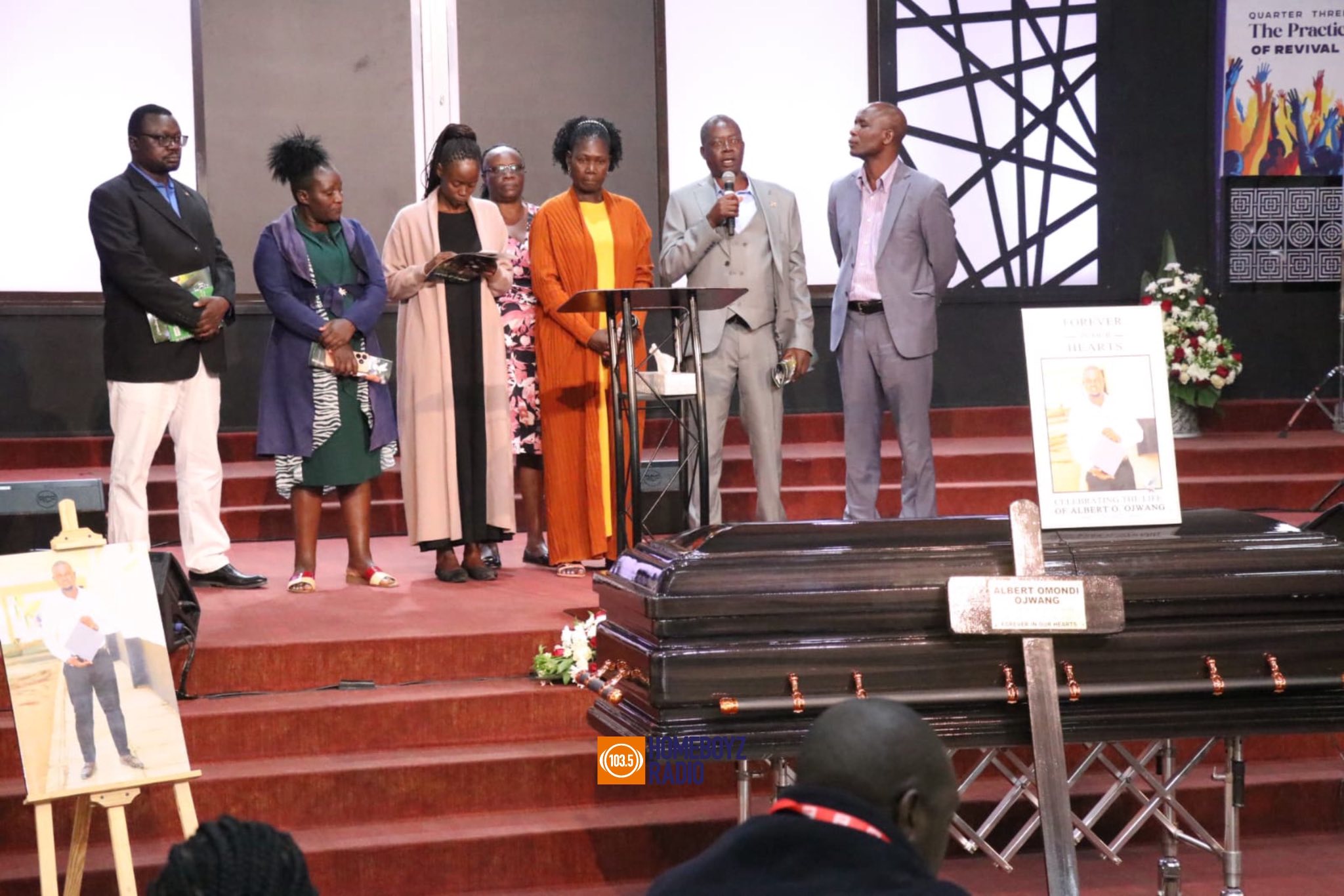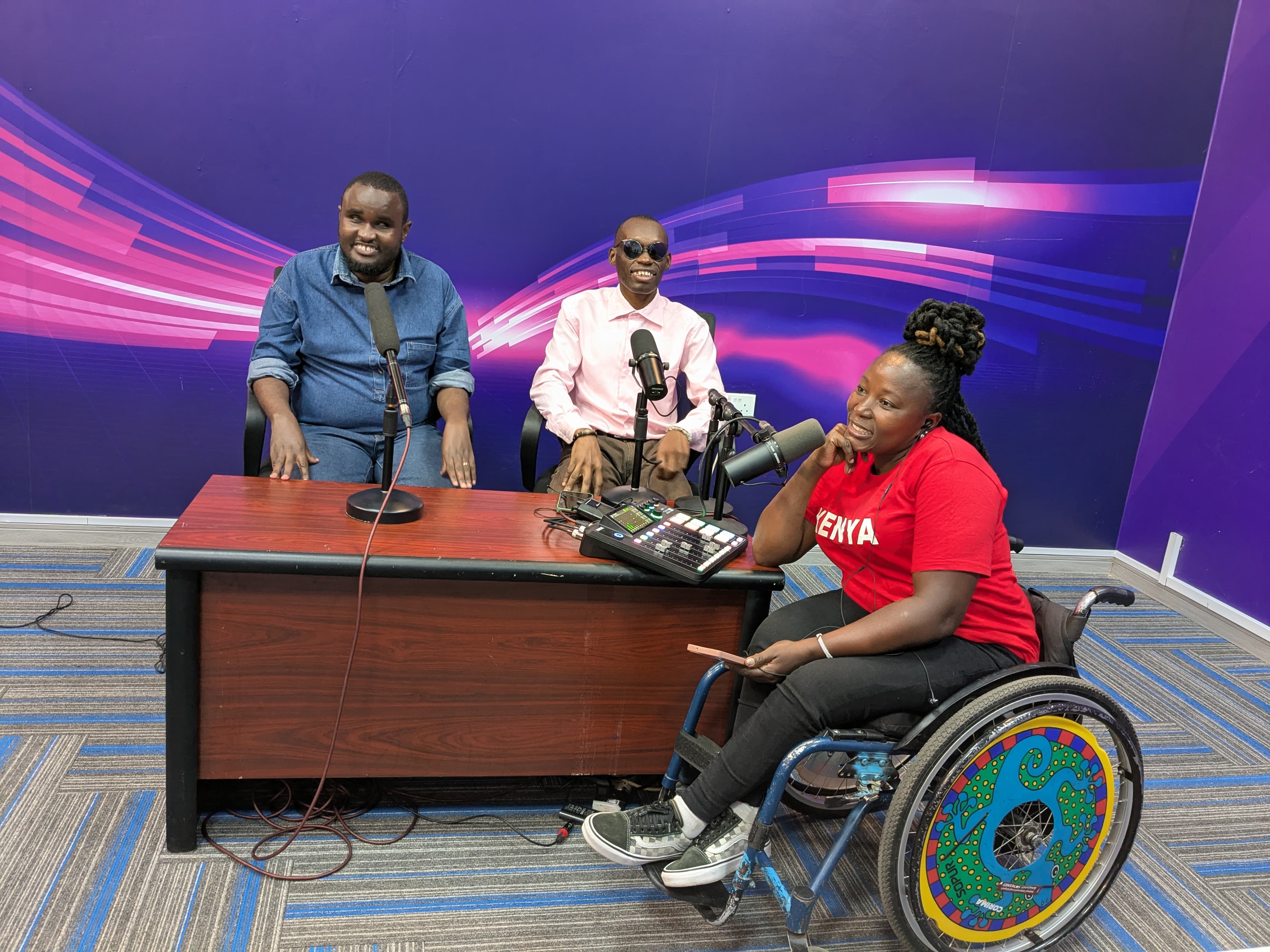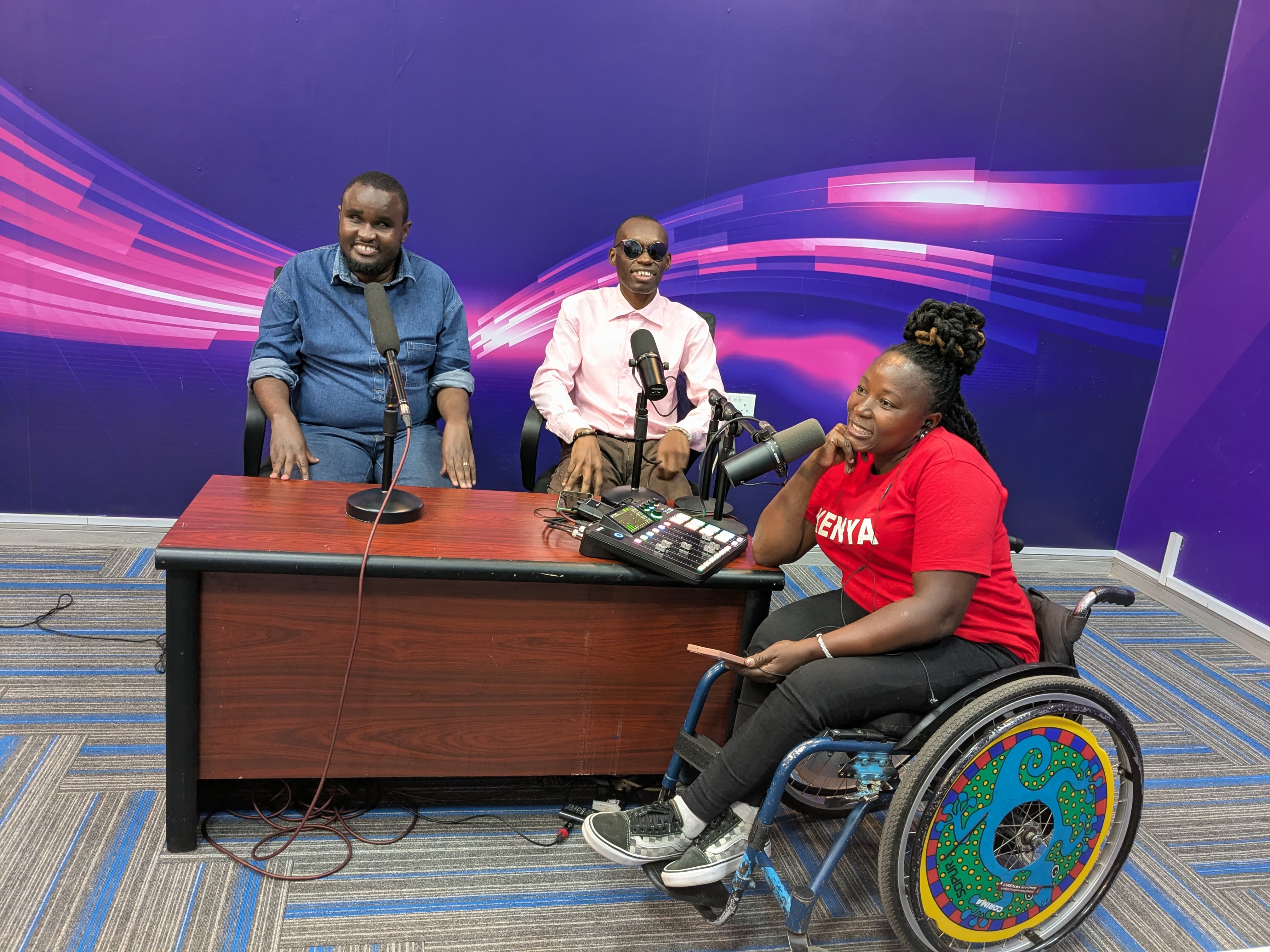Kenya’s First Blind DJ
Familiar Part of the Music Industry: The Art of Mixing Songs and/or Sounds to Make Music
Deejaying music sources have moved from old gramophone records to cassettes, CDs, digital audio files, and even your personal laptop. It has reached the point controversies about artists using artificial voice-overs rather than their own voice in their songs has become old gossip. A disc jockey, popularly known as a DJ, is a person who plays existing recorded music for a live audience- on the radio, at clubs, or at music festivals. The title “DJ” is commonly used by DJs in front of their real names or stage names, and it has become common for DJs to be featured as the credited artist on tracks they produced despite having a guest vocalist who performed the entire song. This means DJs can be seen as solo artists in the competitive music landscape.
Kenya’s First Blind DJ
22-year-old James Masita is Kenya’s first blind DJ after graduating from Bling It On DJ Academy at Donholm as a full scholarship student. Masita says that music has always been his passion, and that it was this passion, along with encouragements from his friends and support from Bling It On Academy, which brought him to where he is today. He counts these blessings and looks forward to future jobs, or gigs.
Masita’s blindness was due to measles infection in his eyes when he missed his ninth month vaccination. Considering how severe measles is on children, the doctors had to remove his eyes or prolonged infection would have resulted in brain damage. Since then, he grew up blind. Through the years however, his dream to be a DJ never faded. “My dream was to join a music class and music has always been interested. This interest in music started when I was a young boy,” he stated. Therefore, his greatest moment was being accepted at Bling It On Academy after High School and remains forever grateful for the founder’s and teachers’ support.
After losing his mother at 2 years, growing up at Mukuru kwa Reuben slums with his grandmother, and touching the owner and founder of Bling It On Academy, DJ Bling, with his story, Masita’s journey to becoming “DJ Unique” began.
The gifted DJ Unique
Masita recalled that navigating the deejaying decks was not hard due to prior knowledge and experience of handling computers. Therefore, after his studies, he mastered the skills necessary for graduation, and proved that disability was not an inability with his skills on the decks from mid-2018. DJ Unique explained his driving motive as wanting to do something unique and supporting his grandmother during his 2018 interview on Ghetto Radio’s True Ghetto Story. He charges roughly 10,000 Kenyan Shillings per gig with prices being negotiable.
As of late June, 2019, DJ Unique had only gotten one proper gig since graduation when a friend had an event and called Masita to spin for the party. “We had fun,” he said, “everybody enjoyed and people did not believe that a blind DJ can also deejay in a gig”.
The Reality
Being a DJ is no easier than any other artistic profession with training, natural skill, and passion being a baseline requirement alongside a degree of monetary capacity, since a good pair of DJ Mixers, or decks, is about 200,000 Kenyan Shillings. James Masita is a way-maker for many musicians in Kenya who are disabled but burning nonetheless to enter the entertainment industry. The fact is that, as diverse as the Kenyan music market is, very few are persons with disability. To name a couple, there is DJ Euphorique who DJs at Uhuru’s State House parties from his wheelchair due to a chronic knee disease, and the famous one-handed DJ Velko, due to cerebral palsy, who used to be Ebru TV’s in-house JD. Masita stands as the only blind professional DJ in the country.
The Future: World Stage?
Internationally, we have blind South African DJ Darkness and Israel’s blind music producer and sound engineer DJ Phobia- among others with different kinds of handicaps. They both encourage those with disabilities not to underestimate themselves and to push themselves past their superficial limitations for the possibilities of the future. With more financial support for persons with disability who wish to join the music arena, as well as shifts in the mental perception of what entails “a capable” person, more people like James Masita will rise from the Kenyan populace. It would amazing when not only Kenyan DJs climb the DJ World Rankings in heated contest against well-known, top-ranking, European and American DJs, but that those with disabilities be in the front-lines waving their flags- or better yet- ours.
Tags:
Related
Share this article
Unregistered Staff and Guest Writers: This account will no longer post articles. We appreciate your past engagement and invite you to stay connected with us!
View articles


